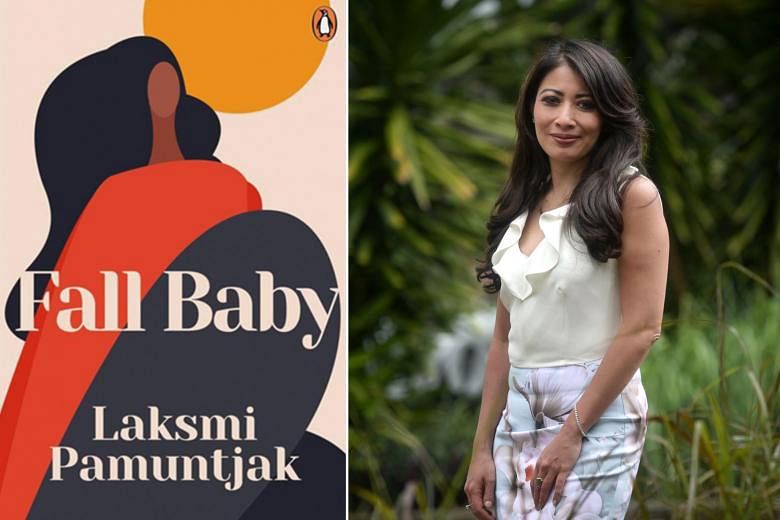Art, politics and the relationships between women make for a heady combination in Indonesian writer Laksmi Pamuntjak's new novel Fall Baby, in which an artist struggles with the discovery that she was adopted and her real father was a political prisoner, even as she faces censorship for her work.
"I wanted to talk about modern Indonesian women," says Pamuntjak, 48, "independent, free-spirited women with integrity who know what values they are fighting for."
Fall Baby is a sequel to her 2012 novel Amba, which was written in Indonesian and subsequently published in English as The Question Of Red. Amba was a bestseller in Indonesia and won the 2016 LiBeraturpreis, a German literary prize sponsored by the Frankfurt Book Fair.
It is a love story that takes place amid the Indonesian mass killings of the mid-1960s, which began in 1965 as an anti-communist purge as then-general Suharto took power following an abortive coup.
Estimates for the number of people killed range from 500,000 to more than a million. Another million or more are thought to have been jailed, suspected of being communists.
The heroine Amba has a brief, intense affair with Bhisma, a doctor, but during a demonstration in Yogyakarta, they are separated and never see each other again.
Fall Baby takes up the story of their daughter Srikandi, or Siri for short, who is profoundly shocked to discover at the age of 40 that the man she always thought of as her father, Amba's German-American husband, is in fact her adoptive parent. Her real father, Bhisma, was imprisoned without trial in a penal colony on Buru Island, where he died.
It took Pamuntjak 10 years to write Amba because of the difficult and controversial topic, which remains a raw nerve in Indonesia today.
In contrast, Fall Baby was written in 2-1/2 years.
It came about because Pamuntjak's German publisher was curious about a sequel. She wound up writing the book in English to meet a translation deadline.
Pamuntjak, a former food writer who was behind The Jakarta Good Food Guide series (2001 to 2010) and the co-founder of the bilingual Aksara Bookstore in Jakarta, has also published poetry and another novel, Aruna dan Lidahnya (2014), about a food-obsessed epidemiologist, which was made into an Indonesian film last year.
Like her character Siri, Pamuntjak shuttles between Berlin and Jakarta. She has an adult daughter with her late husband, who died of cancer.
For Amba and Fall Baby, she drew on the epic Mahabharata, in which Amba is a vengeful princess wronged by warrior king Bhisma. She kills herself and is reincarnated as the warrior Srikandi, who then slays Bhisma.
Mythology gave Pamuntjak a new framework with which to consider the 1960s massacres, but she also wanted to rework these mythical figures with new identities. "I wanted to give them interior lives and not have them be bound by the meanings of the names given to them in mythology."
Much of Fall Baby revolves around Siri's relationship with other women: Amba; Dara, an activist who was once her best friend and is now her nemesis; and Amalia, her estranged stepdaughter, who has become embroiled in a scandal that conservatives are using to force Siri to cancel a controversial art exhibition.
Siri's work is inspired in part by Balinese painter I Gusti Ayu Kadek Murniasih, or Murni, who was known for her transgressive depictions of genitalia, as well as a headless statue in Candi Sukuh, a 15th-century Javanese-Hindu temple.
The sculptures in Siri's exhibition have male heads and female genitalia, and vice versa.
"Of course it would have been banned, had it actually been real," says Pamuntjak, who is now working on a short story collection on women in relationships.
She adds: "Art is about ways of seeing. When you're experiencing intolerance and certain groups trying to impose a singular world-view on people who are so diverse, it makes you think - there are so many ways of seeing something.
"Every viewing of a painting is very private... nobody can tell you what you want to see in the painting. It's about you and your background and all the things that make you."
She adds: "Self-censorship is the worst thing. When an artist begins to censor himself or herself, that's the beginning of darkness."
• Fall Baby ($29.85) is available at major bookstores.


